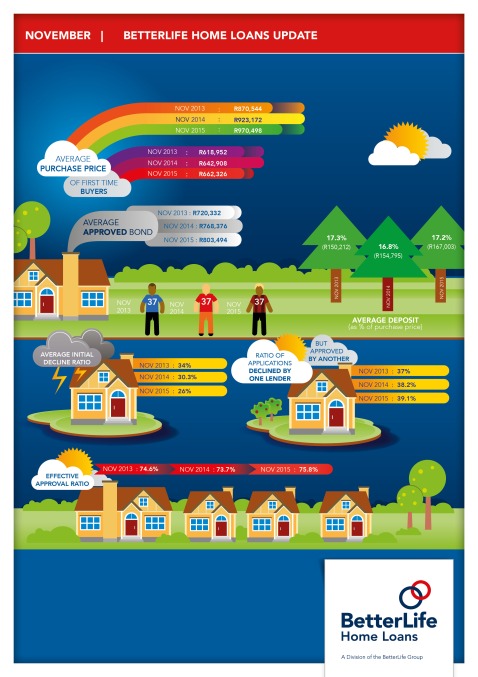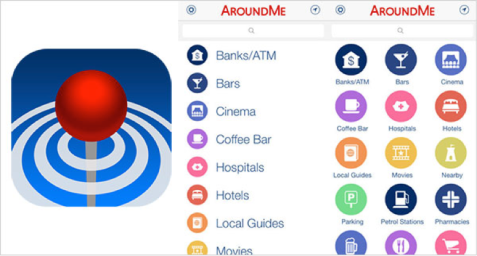Leave work at work: How to really relax during your holiday
Summer is upon us! Many of you are gearing up for the holiday season, the time of the year usually spent relaxing, seeing family and for some, travelling to exotic locations. Even though this is time spent away from the office, many people find their minds drifting back towards work. In the modern work space, it appears that for some, it’s difficult to escape their work responsibilities fully, even if they’re a million miles away on some tropical island and work should be the last thing on their mind. That’s why we’ve compiled some tips to help you take advantage of the holiday period and leave work where it belongs – at the office.
Get work done ahead of time

http://codecondo.com/to-do-list-open-source-web-apps
Many employees feel that over the holiday period they have accumulated so much work that they wish they had never taken time off at all. To avoid feeling overwhelmed during your holiday, get ahead of tasks before you leave. Wrap up as many projects as you can before your holiday begins so they aren’t lingering in the back of your mind. By doing this you can start your holiday off on a relaxed note.
Limit your use of technology

http://www.personneltoday.com/hr/office-employees-check-emails-holiday/
Technology can either be your worst enemy or your greatest ally. Today, we are surrounded by items such as handheld devices, notebooks and mobile internet everywhere we go. All of these keep us connected no matter where we are in the world. Access to technology often helps us to be more productive and do our jobs better, but this easy and constant accessibility can turn out to be a curse when we’re trying to take a break from it all – there’s no way that you’ll be able to relax completely if you’re constantly checking your emails and dealing with work-related matters. The best way to deal with this is by notifying your colleagues at work that they should only contact you in emergencies – that way you know that if you are contacted, it must be something urgent that requires your immediate attention. If you must, you can also allocate a certain amount of time each day during which you can check in and reply to emails, but the trick is to stick to that timeframe and not get sucked in. If you set aside an hour a day, honour that and when the hour is up, put the laptop away and get back to relaxing. Allow your “personal anxiety level” to determine how long and how often you check in. Often a quick scan of your emails can put your mind at ease and confirm that the office isn’t falling apart without you, thus allowing you to return to your holiday less anxious.
Empower your team
When you know your work back home is in good hands, it’ll be so much easier for you to let go and unwind. Part of this is learning to trust your colleagues and allowing them to shoulder certain responsibilities in your absence. In doing this, you empower your team members, something that not only builds trust between you and them, but also gives you the freedom to enjoy your time off without worrying about your projects back home. At the end of the day, delegating can really help you escape work properly because you’ll take comfort in the fact that your work is in good hands, and in turn you’ll hopefully be able to switch off your mind and truly relax.
Have a re-entry strategy

http://roehamptonlearning.com/too-many-emails-how-to-do-as-much-with-less
Even if your vacation was the most relaxing break ever, you’re likely to lose that relaxed feeling fast if you return to an overwhelming to-do list and bulging inbox. Whilst this is almost unavoidable, the best thing to do is to block out your first day back in the office completely to give yourself time to sort through emails, get up to speed with projects and catch up with the relevant people. Leave your Out of Office on too as this will give you a chance to get up-to-date with things before being bombarded with new issues once people realise you’re back. Try and ease back into things after a holiday – the chances are your refreshed brain will be able to tackle things far better any way after having had a good rest.
Finding that perfect work/life balance is difficult at the best of times, so it comes as no surprise that successfully leaving work at work during your holiday is no easy task. Bear these tips in mind when you’re planning your next getaway though and ensure that you get the time off you deserve.
Property market ends the year on a strong note

Property values have continued to grow in the past 12 months, with the average home price showing a year-on-year increase of just over 5% to R971 000 at the end of November, according to the latest statistics from BetterLife Home Loans, SA’s biggest mortgage originator. “At the same time,” says CEO Shaun Rademeyer, “the average approved bond size has only increased by 4,6% to R804 000, which means that many buyers are now able to put down bigger deposits in order to secure their home loans. This is especially the case in the higher price categories, where the average deposit now ranges from at least 15% to as much as 40% of the purchase price”, he continues. “Our statistics show, for example, that the average deposit on homes costing R1,5m to R2,5m is R428 000.”
A drastic drop in declined applications – good news for first-time buyers
In addition, Rademeyer notes that the figures reveal that the percentage of home loan applications that are being declined outright by the banks has dropped sharply in the past year from 30% to 25%. “This indicates that prospective buyers generally have their finances in good order at the moment”, he explains.
The BetterLife Home Loans statistics, which represent 25% of all residential mortgage bonds being registered in the Deeds Office, also contain good news for first-time buyers. They show that while the average purchase price paid by first-time buyers rose 3% to R662 000 in the year to end-November, the average approved bond size in that period rose by 4,3% to R617 000. “This saw the average deposit required by first-time buyers shrink by almost 12% to R45 000,” says Rademeyer. “This is a big boost for those who do not have existing homes to sell in order to help raise cash.”
100% loans
“What is more, some 38% of all home loans granted in the past year were for no-deposit or 100% loans – and most of these went to first-time buyers purchasing in the affordable price range up to around R500 000.” This is very encouraging, says Rademeyer, especially in a market that gets most of it’s impetus from demand at the lower end. This allows new owners to then move up the property ladder.
A word to the wise
Rademeyer does, however, call for caution, saying that the banks are by no means insensitive to the fact that rising living costs and the recent increase in interest rates are making it tougher for consumers to keep up with debt repayments. “Credit granting criteria are thus likely to be strictly applied next year and prospective buyers may well find that they have to consider cheaper properties in order to qualify for loans”, he says. “This is likely to put something of a damper on house price growth.”
ISSUED BY
BETTERLIFE HOME LOANS
FOR MORE INFORMATION
CALL SHAUN RADEMEYER ON
011-516-5500 OR VISIT
www.betterlife.co.za/homeloans
Four tips for estate agents in 2016
It’s hard to juggle do-to lists whilst keeping a smile on your face, isn’t it? Clients are calling left, right and centre, appointments are delayed and potential homebuyers never seem to be really happy with what you propose to them. The property market can be a tough industry to be part of and that’s why as an estate agent, you need to arm yourself with the knowledge and information required to get you ahead of the rest. 2016 is almost upon us so don’t let the challenges of last year dim the sunshine of this New Year. Here are four tips that are sure to kick-start your 2016 and make it the best year in property yet.
Use technology to your advantage

Everyone knows an estate agent’s weapon is a great smile, but so can a user-friendly and fresh-looking website be too. Travis Balinas, product and content manager at OutboundEngine, speaks about a variety of non-negotiable technological elements that could either make or break estate agents in 2016:
- Allow for a greater consumer experience by making sure your website is both mobile and responsive so that it’s not only accessible for clients from anywhere, but it also looks good and is easy to use.
- Use GIFs where you can in your e-mails. They have recently resurfaced and are becoming popular again. They’re a great way to give your online communication a fun, human aspect to it.
- Have you heard of Hyperlapse? It is a new app launched by Instagram that allows you to do time-lapse photography really easily, and the best part is, it’s free. Balinas adds: “I see Hyperlapse as a unique way for agents to liven up the content they share to Instagram, Facebook and Twitter, and also as a way to (almost) literally liven up their listings.” You can use Hyperlapse for quick home walk-throughs as it will allow you to show off a lot of space in a short amount of time. Maybe even use it to do a quick drive through the neighborhood? This will give potential buyers a more in-depth view of the area they may eventually call home.
Try to find a routine within the chaos
Famous blogger, Carson Tate, says: “Information overload is the new normal… You need to manage the flow of information in your life.” All too often, the life of an agent can be nothing short of manic, jam-packed with appointments, meetings and running from one property to the next. In order to stay sane and not get overwhelmed by the constant flow of information coming your way, you need to streamline your information inflow by doing the following:
- Carefully choose who you follow on Twitter and Facebook – avoid following people and pages that bring you nothing useful
- Remove yourself from unnecessary mailing lists
- Screen your phone calls and make a time to call people back each afternoon (if possible)
- Check your mails regularly to ensure you don’t miss any important client messages.
Finding your way through the chaos is much easier when you’re more organised and you’ve stripped everything down, leaving you with only the things you really need – decluttering in every way possible is key.
Create an inspiring work environment

Have you been dreaming about putting more art up in your office, or maybe changing that wall colour, adding a quote to your desk, spring cleaning the place or personalising your workspace in any number of ways? Tate explains that one spends an average of 44,2 hours a week at work, and since that’s quite significant, it makes sense for you to create a space in which you’re happy to spend a lot of time. In many ways, your space is your sanctuary, so why not start this New Year by creating a cosy little world for yourself? Everything will seem more enjoyable, you’ll see.
Learn how to photograph a house better than last year

There are loads of tricks to photograph a space and make it look its best. Professional photographer, David Duncan Livingston, indicates that composition is key in creating beautiful photographs. You can vary your compositions: diagonal, straight on and even asymmetrical, each of which highlight certain details. Taking the time to compose a shot meaningfully can make a huge difference for the end result. Here are a few things to bear in mind when next photographing a space:
- Make sure your camera isn’t too close to any furniture
- People tend to like symmetry so the space should be balanced without too many objects on one side or the other
- You can crop your photo after you shoot it to give you more options
- Use natural light as much as possible, so be sure to shoot at the right time of day, whether you’re shooting on the go with your phone or using professional equipment
- Keep the light consistent for the entire house or apartment if possible.
Very often, the first glance people will get of a property will be via photographs, so it will greatly benefit you as the agent if you present images that do the particular home justice – it is, after all, your chance to pique the interest of potential buyers in a matter of seconds.
Just like in any other profession, becoming better at what you do requires investing the necessary energy in learning and growing, both of which can benefit you and your career in the long run. Using these simple four tips in 2016 can really help elevate you from being a good agent, to being a great one. On top of that, you’re bound to enjoy your work more and in return, have happier clients – what more could you ask for really?
Credits:
http://www.huffingtonpost.com/carson-tate/prepare-to-live-fully-in-2015_b_6520076.html
http://www.outboundengine.com/blog/9-pro-tips-marketing-ideas-for-real-estate-agents-in-2015/
http://www.property24.com/articles/top-tips-for-estate-agents/16716
http://www.outboundengine.com/blog/9-pro-tips-marketing-ideas-for-real-estate-agents-in-2015/
http://www.outboundengine.com/blog/9-pro-tips-marketing-ideas-for-real-estate-agents-in-2015/
Car or flat? How to be smart about your choice
 Many young people starting out their careers are faced with the choice of buying their first car or their first apartment. “And the answer might not be as straightforward as you might think,” says Shaun Rademeyer, CEO of BetterLife Home Loans, SA’s biggest mortgage originator.
Many young people starting out their careers are faced with the choice of buying their first car or their first apartment. “And the answer might not be as straightforward as you might think,” says Shaun Rademeyer, CEO of BetterLife Home Loans, SA’s biggest mortgage originator.
Pros and cons for both
“On the one hand, a car might make it easier for you to get around and improve your job prospects. You also need less cash upfront to buy a car and the shorter loan tenure makes this a less scary purchase”, says Rademeyer. “On the other hand though, a car is a depreciating asset while a property, generally speaking, will continue to appreciate in value and be worth more when you sell it than when you bought it. What’s more, if you choose the right property in a location that enables you to use public transport instead of a car, you can probably pay it off a lot faster.”
However, people are all different and there is clearly no one-size-fits-all answer to this question.
Things to consider to make the best decision for yourself
Considering the following issues can hopefully help you to find the right answer for your circumstances:
Which do you need more?
You might want both but which do you really need more? If you are living with family or renting cheaply with roommates but that means a long commute to work, you may feel that you really need a car right now. However, you should sit down and work out whether your current rental option is really the most cost-effective solution – and whether you plan to continue with it for the next few years while paying off the car. If you did not have to pay for a car, maintenance and insurance, for example, you might be able to live close to work even if you did have to pay more rent. In that case, you might even be able to save enough to buy a car for cash or even buy your own apartment sooner than you thought.
What can you afford, realistically?
There is often a big difference between what we want and what we can afford. If you decide that you would rather have the apartment, for example, you will need to save enough cash for the deposit and transaction fees. You will also need to make sure that you can comfortably afford the bond instalment, the monthly levy, the property rates and the insurance on your current earnings. If your finances won’t stretch to this right now, you will no doubt make choices that will help you either to boost your earnings or cut your living costs and start saving.
Consider your lifestyle
Some people really don’t mind renting but hate travelling on public transport, for example, and would always choose the car ahead of the apartment. For others, having a place they can call their own and not having to worry about annual rental increases is much more important, so they will naturally do whatever they can to buy the apartment and worry about a car much later. You need to be honest with yourself about what your personal priorities are and make your choice accordingly.
Deciding to buy a car or a flat are big decisions, not to mention huge investments, so you need to think long and hard before taking the plunge either way.
Your credit record: Small steps can lead to great rewards
 One of the mysteries of modern life is why so many smart young people seem to know so little about managing their money or building their financial future.
One of the mysteries of modern life is why so many smart young people seem to know so little about managing their money or building their financial future.
Shaun Rademeyer, CEO of BetterLife Home Loans, SA’s biggest mortgage originator explains: “Most of them aren’t aware of the importance of a good credit record until they apply for a cellphone contract, try to buy furniture on account or perhaps seek to finance their first car – and are turned down.”
What you do now will affect things later
“Even when young adults already have a bank account, a student loan account or an account at a clothing store, they often don’t understand that how they manage these accounts right now can have a really significant impact on their lives in future”, Rademeyer continues. “They may not think it’s a big deal to be overdrawn at the end of every month, for example, or to be erratic in how and when they pay their small monthly account instalments. The truth is that this all goes on their credit record and could really count against them when they want to access any further credit later on.”
Rademeyer notes that taking the time now to develop good credit habits even on “small beans” accounts and to build up a good credit profile could save them a substantial amount of money later on. “That’s because when lenders and credit providers look at credit records, they are not only checking to see how much credit you already have and whether you can afford another monthly repayment. They also want to see if you have a history of good credit management – like paying all your bills on time – and are generally a good ‘credit risk,’ who is unlikely to default on a loan, a lease or a hire-purchase contract.”
A good credit rating opens doors
“If you do have a good credit rating, it will not only be easier for you to obtain new credit but also to negotiate a preferential interest rate that could translate into significant savings. Currently, on a personal loan of R100 000, for example, your monthly repayment could be as much as R3000 or as little as R2100, depending on the interest rate the lender decides to apply based on your credit profile. That means you could save almost R54 000 over five years if you were able to get the loan at the right rate”, explains Rademeyer.
Similarly, you can save money on car purchases and 20-year home loans. “For example, the current variable home loan rate is 9,5%, and if you were granted a R1m home loan at that rate the interest over 20 years would amount to more than R1,2m. However, if you had a good enough credit rating to cut just 0,5% off that interest rate, you would shave almost R78 000 off the total cost of your home over 20 years.”
“In short, every little thing does matter when it comes to managing your finances, and the sooner you start to actively build a good credit record, the better”, he concludes.
Where to start?
One way to start, says Rademeyer, is to make sure that all your current bills are paid on time and in full. “If your rent is due on the first of the month, make sure you always pay it then, or the day before. If you have a clothing account or a student loan to pay off, make sure the instalments are always paid in full by the due date. If you have a credit card, you should only use it for small purchases and then pay these off completely at the end of every month.”
“Next, you need to establish an overall financial ‘game plan’ that will enable you to make smart spending and repayment decisions going forward. To avoid maxing out your credit card, for example, you need to be deliberate in the way you use it and work out a realistic timeline for paying any major purchases back. If it is going to take too long, incur too much interest or affect your other financial plans, you may want to rethink it – or at least put it off until you can pay cash.”
Start saving
And finally, says Rademeyer, you really should start saving. “At the very least, open a bank savings account and start putting 10% of absolutely everything you earn into it. You might think of this as an emergency fund, a travel fund, a new-car fund or as a deposit on your own home one day – it doesn’t matter. What counts in terms of your credit record, and your financial future, is that being able to save some of your income every month is further evidence of your ability to manage your money really well.”
Apps to optimise your productivity while on the go

http://www.sonitekapps.com/blog/wp-content/uploads/real-estate1.jpg
It’s no secret that a typical day for an estate agent involves long stretches of time spent on the road between viewings and meetings. Luckily, modern techology allows us to stay in touch and continue working on-the-go, two things that definitely help to make the lives of estate agents that much easier. There is a range of different tools designed to help you manage your life efficiently and in turn, allow you to be as productive as possible, day in and day out. Here’s our list of must-have mobile apps for the savvy estate agent.
Google Maps
Whilst this may seem like an obvious suggestion, it really is a vital one nonetheless. As an agent, you’ll be going from one property to the next all day, so it’s important that you know exactly where you’re headed each time. In some cases, you may find yourself having to venture into an area that you’re not very familiar with, in which case Google Maps is bound to come in very handy. Instead of getting lost and wasting your precious time as well as your clients’, use this ingenious tool to help guide you to your next destination safely and quickly.
Available on: iOS, Android, Windows Phone and web
Price: FREE
CamScanner
Tired of having to make countless runs to the office to make scans of important documents? Well, with the CamScanner app, you won’t have to do that anymore. Now you can scan documents and contracts directly from your mobile device and they will look like real scans. All you have to do is take a photograph and CamScanner will do the rest – it really is that quick and simple.
Available on: iOS, Android, Windows Phone and web
Price: FREE (Premium Account available at a cost)

http://dd508hmafkqws.cloudfront.net/
AroundMe
This is a real winner for estate agents as well as for people looking to purchase or rent a home. AroundMe provides information on a specific area, giving you a clear overview of the suburb you’re interested in. Find out where the nearest bank, petrol station and hospital is located in order to gain an idea of the proximity of local amenities to the property. Potential buyers will find this information highly useful as it can help influence whether or not a certain home is purchased in the end or not. Not only will clients find the information useful, but when they see you have all of it at your fingertips, they’re likely to be even more impressed with your dedication to the selling process.

Dropbox
This one is a favourite, not only for estate agents, but for anyone who wishes to safely store their documents where they can access them anytime, anywhere. Dropbox allows you to keep images, documents and all information relating to various properties in the Cloud. Gone are the days of you having to be tied to the desktop on your desk – now you can safely access everything you need via Dropbox. You can also use folders to organise your information which means that you’re able to locate what you’re looking for at a glance – no hassles, just instant access. And when you’re an estate agent juggling a huge number of different properties, organisation and easy retrieval of documents, contracts, pamphlets and images are two things that can make all the difference to your daily routine.
Available on: iOS, Android, Windows Phone and web
Price: FREE up to 2GB
Working on-the-go means that anything and everything that can help to make you more productive and carry out your duties more efficiently are necessities. With so many fantastic mobile apps available today, your biggest problem won’t be being the most capable and best possible agent for your clients, but rather deciding which one you need to download first.
BetterRewards App
This list wouldn’t be complete without the BetterRewards App from BetterLife. It provides easy access to rewards and benefits for BetterReward’s members (that’s you, the agent) and members can log in using the same credentials they use on the web portal and view their points balance and tier status. The app also features Estate Agent Tools in the form of Savings Calculators, Quick Calculators and Affordability Calculators, all of which assist you on the go. The BetterRewards App allows easy redemption of points for rewards, access to the Concierge Service via the one press “Call Me Button” (that provides a call back), as well allowing the user to view their MasterCard Balance and OTP Statement. There is also an in app messaging service that notifies you of card loads and redemption of points – this is an app you’ll definitely want in your life.
When it comes to technology: Potential homebuyers can rely on BetterLife’s bond calculator to help them work out how much they can afford to spend on their dream home.
When it comes to optimising your time as an agent, you need all the help you can get, so why not looking into downloading one (or more) of the amazing apps mentioned here? Productivity awaits!
Men are from Mars and Women are from Venus: The differences between male and female homebuyers

https://media.licdn.com/mpr/mpr/p/2/005/02e/057/1fb1835.jpg
A big part of your role as an estate agent is knowing your clients and doing whatever you can to meet their needs as homebuyers. The more familiar you become with peoples’ behaviour and their attitudes towards purchasing property, the more helpful you’re ultimately going to be. When looking at female and male buyers, it comes as no surprise that each has their own way of approaching the homebuying process. At the end of the day, the more in tune you are with this as an agent, the more successful your interactions with clients are likely to be and in turn, the more deals you will end up closing. Here are a few common differences between female and male clients that are worth remembering, as they are sure to help you develop an educated approach to potential homebuyers of different genders.
Men speak ‘money’
When it comes to the financial research that goes into the costs involved in buying a home, it’s usually the men who spearhead this task. They are more often the ones in charge of negotiating, getting bond approval, coming up with a deposit and making an official offer. As an agent, it would be beneficial to you to ensure that the male client is made to feel included in and an active part of all conversations regarding these matters. More often than not, you’re safer having major discussions surrounding finances with the guys.
Women think about the long-term
In a lot of instances, it’s the female clients who are the ones in search of more long-term residences. In it for the long haul, female buyers often plan to make a house their home for more than five years. This is not to say your male clients don’t share the same view, but it’s all too often the nesting urges of women that seem to kick in when they’re house hunting, which would explain why they’re more inclined to buy a home that they can see themselves living in for quite a few years.

http://i.livescience.com/images/i/000/025/671/original/daydreaming-woman
Men handle the business side
All that detailed paperwork, lawyers meetings and the general handling of business that comes with buying a home, are more often than not left to the men. They generally enjoy getting into the nitty-gritty, so whilst finding the perfect place and having a vision for it usually lies with the woman, it’s the numbers and forms that fall into the man’s domain.

https://www.thespystore.ca/uploads/content/fullsize/man-online-shopping.jpg
Women are the planners
This is not to say that men can’t be organised, it’s just that when it comes to things like scheduling house viewings and appointments with the agent, it’s usually the women who take the wheel here. Essentially, women are, more often than not, the schedulers and planners. Instead of trying to arrange a meeting with your male client, opt to contact the woman rather –chances are that he’ll have to confirm with his better half first, before giving you a definite answer.
And women like to research the neighbourhood
Women are usually the ones who set out to familiarise themselves with the prospective areas they may eventually call home. They are the ones who learn about the pros and cons of a particular area to determine whether or not it’s the right place in which to settle down. It’s for this reason that as an agent, you need to be aware that your female clients will most likely be interested in hearing about statistics linked to things such as a community’s crime rate, its architectural style and its proximity to desired locations and amenities. In order to satisfy your clients, you’ll need to paint a clear picture of the neighbourhoods under consideration – it could make or break a sale.
Whilst men and women may differ in their approaches to buying a home, there are also certain things that inevitably are in agreement on; the overall condition of a home, the number of bedrooms a house has and whether or not the neighbourhood is safe. Very often, it’s the agent who ends up playing the mediator between the two so it’s important to give your professional and honest opinion at all times. Being aware of how your male and female clients differ should better equip you to interact with them in the most effective way, something that will hopefully benefit both you and them in the end.
*Please note: Whilst all the information mentioned here can be true in many cases, there will of course be instances in which the differences will not apply to every female or male you encounter. It’s best to gauge each situation on an individual basis.